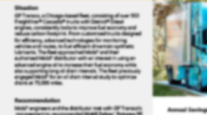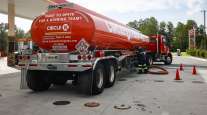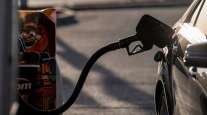Editorial: Groundhog Days
There are certainly times when aspects of our world take on shades of that perennial favorite movie, “Groundhog Day.” All we’re missing is Bill Murray and the icy pothole he steps in every morning.
On Aug. 27, we wrote in this space: “So here we are again, trapped in still another fuel-price spiral, as we helplessly watch outside events and parties set the price of the precious liquids that make our industry possible.”
At that time, diesel had risen seven weeks in a row, after several months of price declines. The fuel average across the nation had risen 37.8 cents over that period, to $4.026 a gallon, 21.6 cents a gallon higher than it had been a year earlier in August.
At that time, we wrote, “Still, the nation muddles along with no national fuel policy, no national freight policy and no real defenses against the market gyrations that stress our fleets and threaten our economy.”
Today, diesel has risen five weeks in a row, by a cumulative total of 26.3 cents, to a new national average of $4.157, the highest level in 4½ years.
Last week alone, diesel rose by 5.3 cents, while gasoline leaped by 13.6 cents a gallon. Gasoline has now risen nine weeks in a row, for a total of 49.3 cents, to an average retail price of 3.747.
And about the only difference between today and August is that the Obama administration has recently taken some tentative steps toward working on a national freight policy.
The balance of the August statement is just as true today as it was back then.
Today, we’re hearing that much of the price hike is based on refinery maintenance projects.
But maintenance projects occur this time of year every year. And the U.S. economy is still puttering along, as the European nations continue to struggle, meaning there’s no great spike in demand for transportation fuels.
Last week, we were told that prices jumped because crude has risen faster than diesel and gasoline, so it was a period of retail price catch-up.
In the end, it’s always something. And it’s almost always something that we are unable to control.
No wonder there’s so much fleet interest in natural gas and other alternative fuels. It would be nice to think that fleets had some ways to control their fuel costs.




